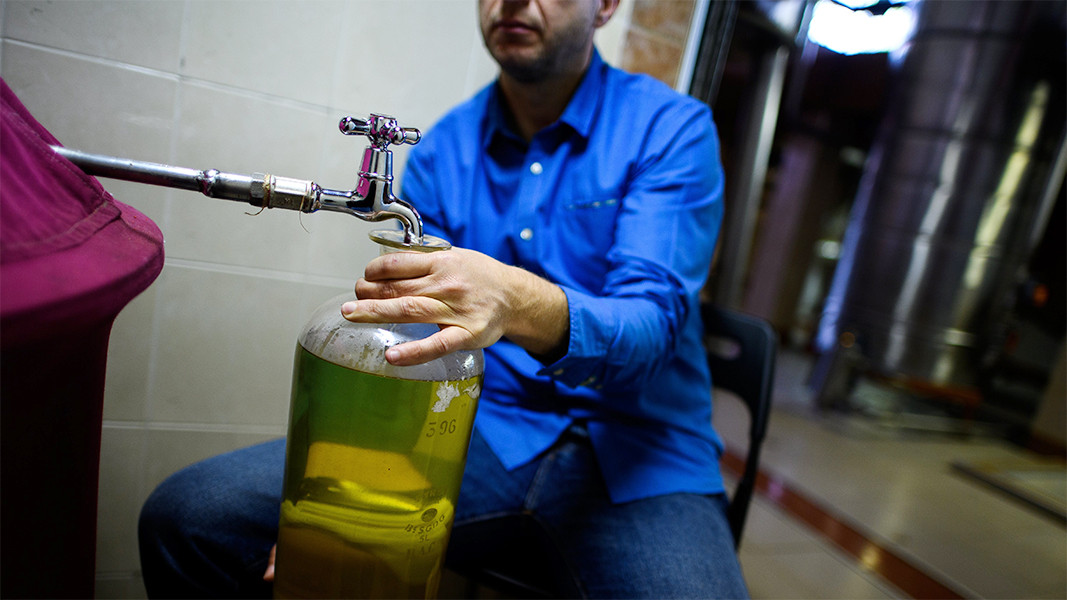 4
4
Bulgarians often refer to the fragrant oil-bearing rose, which has been grown for centuries in the picturesque Bulgarian towns of Karlovo, Kazanlak, Strelcha and Perushtitsa, as “Queen Rose”. For more than 40 years an annual pageant called “Queen Rose” has also been organised in Karlovo.

But why is this rose a “queen”? It is not just because of its exquisite aroma and beauty. The pink flowers, carefully collected early in the morning could actually make someone's dream of great wealth come true.
It happened before and it might become true again.
The first information about the rose dates back to antiquity, when Greek chronicler Herodotus mentioned that the most fragrant roses grow in the Thracian lands. Information about the oil-bearing rose dates back to the 13th century when during the Eighth Crusade launched by Louis IX, one of the participants brought the Rosa Damascena from Damascus to France. Later in the 18th century it was brought by the Ottoman Turks to the valleys of Bulgaria at the foot of the Balkan Mountain. This geographical area provides the most favorable conditions for growing roses.

That is how the rose entered the life of Bulgarians and the economy of the country. Due to its great importance, the area is named the Rose Valley of Bulgaria.

The greatest rise in the cultivation of roses and the extraction of rose oil happened in the 19th century when rose oil trade developed as a family business. This provided a livelihood for nearly 200,000 Bulgarians.

The reason for the rapid growth in the cultivation of roses is the traditionally high price abroad. The first large rose oil traders emerged and they opened their representative offices in cities like Edirne, Istanbul, London, New York, Vienna and others. Brothers Hristo Puliev and Nikola Puliev from Karlovo were among those who accumulated serious capital. At that time the price of Bulgarian rose oil was equal to the price of gold.

Due to the exceptional quality of Bulgarian rose oil, it is still greatly valued and sought after by producers of high class perfumery and cosmetics. Bulgarian rose oil is a major component in expensive perfumes such as Just Pink by Cavalli, 5th Avenue by Elizabeth Arden, City Glam by Armani, Clive Christian's luxury perfumes and many others.

Today, despite the great economic importance of roses, the number of rose plantations in Bulgaria has been declining. The reason for this is the labor-intensive work of harvesting and processing roses, combined with the low purchase price of the harvested flowers. Farmers say that due to the high costs of cultivation and maintenance of rose plantations, other crops have become more profitable for them.

A big problem is that there is a lack of targeted assistance from the state to protect this traditional Bulgarian business against the backdrop of the economic crisis and galloping inflation. This year, one kilogram of Bulgarian rose blossoms is bought for about 1.25 euros per kilogram. 3,000- 5,000 kilograms of rose blossoms are needed for the production of 1 kg of rose oil.

The Bulgarian rose oil is well-known and respected around the world because of its qualities. It is obtained from the best and lightest flowers of the rose. It has a yellow-greenish color and a specific pleasant aroma. It contains many valuable ingredients for human health, so in addition to cosmetics, it is also used as an aromatic food spice. Aromatic rose tea with calming effects is also produced. One can even make jam of rose petals, which are also used in the production of Turkish delight.

English: Alexander Markov
Photos: BGNES, EPA/BGNES, archiveThe German economy has been shrinking and the government expects a decline of 0.2% of GDP. Some of the main reasons for this include unresolved structural problems related to lack of energy security, excessive bureaucracy and shortage..
After the election for parliament on 27 October, the caretaker government has to submit a draft of a budget for 2025 to parliament by the end of the month. Some economic analysts say the budget of the country for 2024 is the worst in the past decade. Holes..
Bulgaria's economy will grow by 2.3 per cent this year. This is according to the latest World Economic Outlook prepared by the International Monetary Fund and presented today in Washington. This is down from the Fund's April estimate, which predicted that..
Petar Ganev , senior researcher at the Institute for Market Economics announced, for the BNR, the publication of their white paper of the Bulgarian..
In the space of 15 years, from 2005 until 2020, 75% of the farms in the country have disappeared – from 500,000 in 2005 down to 132,000 in 2020, said..
In October 2024, the total business climate indicator decreased by 5.6 percentage points compared to September, dropping from 22.5% to 16.9%. The index..

+359 2 9336 661
